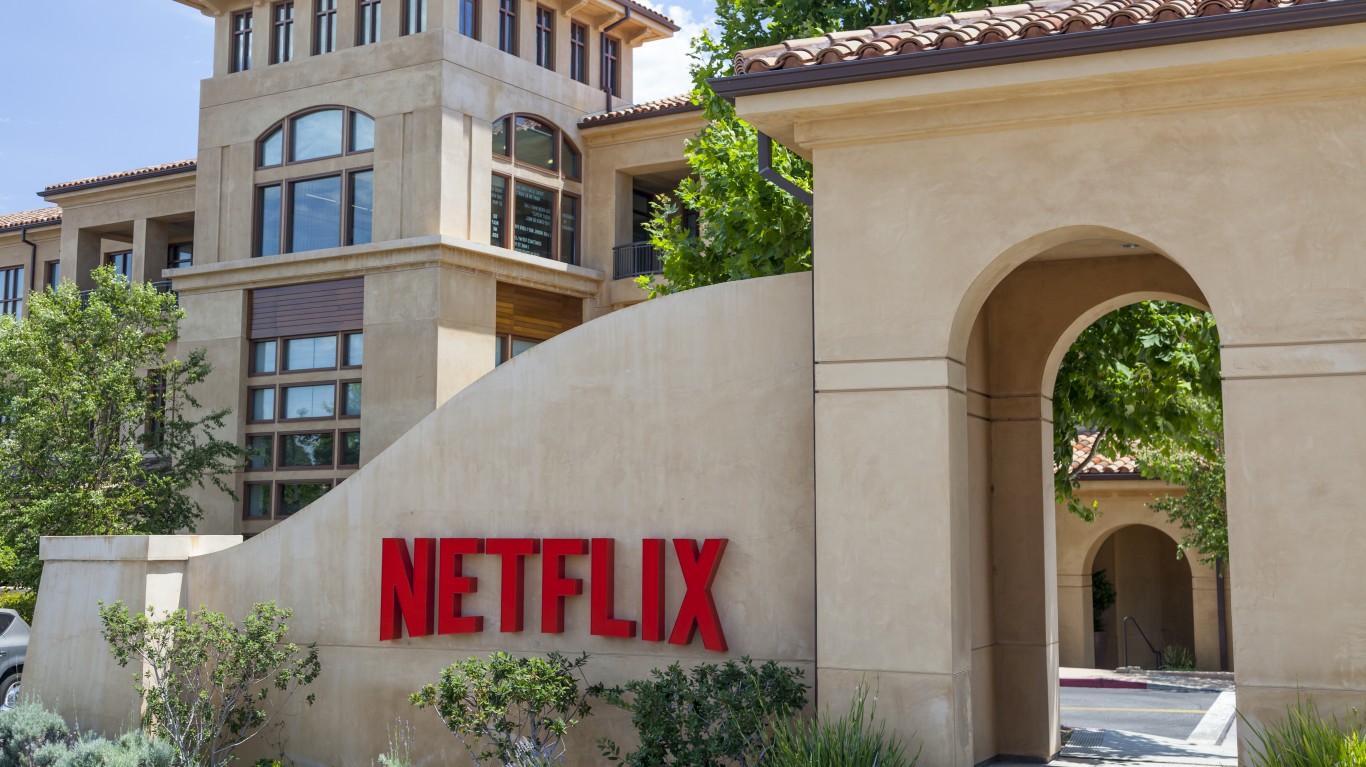
Today, Google gets over 9.5 billion searches per month in the United States. Although search engines such as Microsoft’s Bing compete for a share of the market, they present no real threat to Google’s dominance. In reality, it is not other search engines that should have Google concerned. The search juggernaut faces a greater threat from a Cupertino, California company that has not even developed its own search engine: Apple.
Less than two decades ago, before Google was a verb, the only central location to access information was the library. Reading the newspaper or calling Moviefone was the only way to find out what time a movie was playing. The Weather Channel cable network was the only place that provided meteorological data.
In the mid-nineties, Web portals and Internet service providers, like AOL and Netscape, became the bazaars for the Internet. Before Google, while search was still in its infancy, Web users relied on these portals to aggregate content – content that was nearly impossible to find by the average person. In little over a decade, however, Google’s search technology has grown to dominate the Web experience. Presently, the search engine is the first place many users go to find information online.
The App Store
On July 10, 2008, Apple launched the App Store, stoking the accelerated adoption and mass appeal that the iPhone enjoys today. As of March of this year, the store had well over 3 billion downloads and over 150,000 apps available for download. Over 50 million iPhones have been sold, with another 50 million in sales expected by the end of 2011. And, by most estimates, sales of the iPad could easily reach 10 million in the coming 12 months.
Apple is undoubtedly one of the dominant players in the smart phone space. Now, without launching its own search engine, Apple could make the search engine antiquated. Apple, which has been categorized as a hardware company since it was founded, has evolved into one of the most important software firms in the world, and the app is its primary product.
On the iPhone – and now on the iPad – Apple apps have begun to replace Google search. Most people who use Google repeatedly search a small number of items – examples include weather, movies, games, and news. Apple apps have the effect of helping people organize the subjects of their most frequent searches by creating discrete applications informed by their common interests. These applications have become, in essence, their own search destinations.
The app experience is what Google wants to deliver. Generally, Google search produces countless pages of results, most of which are not helpful. Dictated by algorithms, these results generally require users to do most of the heavy lifting. Conversely, apps are tailored to a user’s preselected preferences. It is the user who downloads the app that gives him lyrics to the song he just heard. Effectively, the app is a personalized version of the search experience. In the next few years, the App Store will disintermediate Google from search results, threatening the search engine’s primacy on the Web.
What’s more, Apple will only improve the user’s experience at the App Store. Apple will make improvements to the way applications are designed, organized, distributed, and searched. These advances will only foster an increased rate of adoption. Apple’s future includes the certain popularity of the iPad, the iPhone’s availability on the Verizon Wireless network and an increasing number of wireless networks overseas. Additionally, available apps are expected to double, reaching 300,000 by the end of 2011. The modest impact Apple has on Google’s search to date does not take these eventualities into account.
Google Searches and Apple Apps
24/7 Wall St. reviewed Google search data to determine ten of the most popular categories the search engine is used to find in the United States. We then reviewed the Apple App Store for the most popular apps that produced comparable or superior results.
Social Media – Surprisingly, many search engine users do not bother to type the full URL of the social media site they use into their Internet browser. Instead, they reach the site by entering its name into Google. Conversely, when users download social media apps onto an iPhone and iPad, they can visit their profile page by simply tapping an icon. This effectively reduces traffic for Google searches of social media sites.
Among the most popular social media apps are:
- Facebook (Facebook.com) Free – The fact that Facebook is one of the most searched terms on Google (#1 search in the past year) illustrates that users employ the search engine as a portal to locate their most frequently visited sites. The adoption of the Facebook app, which provides the same experience as the Internet version, has certainly taken market share from Google as its single largest search.
- MySpace Mobile (Myspace.com) Free – While Facebook has replaced MySpace as the number one social media network, “myspace” remains the 4th most popular search since 2004.
- Echofon Tor Twitter (Naan Studios) Free – Twitter is the 29th most popular Google search in the past twelve months. Twitter was designed with mobile text communication in mind. Applications like Echofon give iPhone users most Twitter functions, all while circumventing Google by allowing the user to “tweet” directly to Twitter.

Retail – Searching for products on Google is a popular way to find items online and compare prices from different merchants. Among the most common retail searches are “walmart” and “target.” The iPhone offers dozens of applications that allow users to shop online, compare prices.
Among the most popular retail apps are:
- Wal-Mart Mobile (Wal-Mart Stores, Inc.) Free – “Walmart” is 22nd most popular search in the past 90 days. This app allows the user to browse items and store locations in the same manner they would on the company’s Website.
- eBay Mobile (eBay inc.) Free – “Ebay,” the popular auction site, is the 17th most popular Google search over the past 12 months. Surprisingly, some find that this app is as easy to use as the full online version. Ebay Mobile is the most popular free utility in the App Store.
- Redlaser (Occipital LLC) $1.99– This app is one of the many that allow users to photograph a barcode, bring up a comprehensive list of prices online and at comparable stores, and view those store locations with a map feature.
Lyrics – The number one searched word on Google from 2004 through 2010 is “lyrics.” Users type in the word to locate one of several thousand song lyrics aggregation sites. This system is imperfect. Most lyrics sites are incomplete and often inaccurate. iPhone lyrics apps are far better. They have more useful features, they are simpler and have the added bonus of being mobile.
Among the most popular lyrics apps are:
- MusicID With Lyrics (GravityMobile) $0.99 – MusicID With Lyrics allows the user to search lyrics by artist, song, or even a specific phrase. With this software, an iPhone “listens” to music being played and identifies the song. It also offers the option to download the song from iTunes, and watch videos of the song on YouTube.
- Shazam (Shazam Entertainment Ltd.) Free – Does everything MusicID does, and also syncs with the Google map feature to identify a band’s upcoming tour locations.
- SoundHound (Melodis Corp.) $4.99 – This app also does what MusicID can do and also recognizes a tune sung or hummed by the user.
Navigation – “Map” is the 11th most popular search over the past three years, with “maps” (#22) and “mapquest” (#23) also generating significant search traffic. As navigation apps become increasingly accurate and networks more efficient, mobile navigation software will become the obvious choice over searching for and printing out maps.
Among the most popular navigation apps are:
- iPhone Google Map (Apple) Free – This application, which comes pre-installed, offers everything its parent site offers. Users can search for directions, locations, and “points of interest” (e.g. gas stations, restaurants, and hotels.) Because the app is mobile and can use the phone’s GPS feature, the software gives users real-time updates.
- MotionX GPS Drive (Fullpower Technologies, Inc.) $0.99 – One of the most downloaded paid navigation app for the iPhone works like a GPS. This app is well-designed for mobile navigation.
- Mapquest 4 Mobile (MapQuest, inc.) Free – Although the Google search “mapquest” has dropped in popularity since Mapquest Mobile became available, the top free navigation app is a viable alternative to the Google maps application.
Email – It is somewhat surprising, but searches for email portals are remarkably popular. This is despite the availability of Webmail providers like Gmail and Hotmail. Over the past ninety days, Hotmail and Gmail ranked 15th and 16th among Google searches, respectively. Yahoo (#5 in the same period) admittedly functions as a news portal, among other things, but “mail” is the most common word used in conjunction with the term. The iPhone email client, which comes standard with the device, is free and easy to use. It includes direct links to Microsoft exchange, Gmail, Yahoo mail and AOL Mail. For users who would rather have an independent app, there are literally thousands to choose from.
Games – The term “games” has been in the top ten searches every year since 2004, and has been in the top five in all but two of those years. While some of these searches are actually by people who are looking for sports (i.e., physical activity,) the majority are users looking for amusement. Mobile Games are central to the iPhone’s appeal. All but two of the top ten grossing apps are games. Many of these are upgrades or clones of the flash games Google searches would find. 24/7 Wall St. has not attempted to pick three apps from the hundreds of thousands of available games.
These three leading developers are examples of the success of mobile gaming on the iPhone:
- EA Mobile – The mobile arm of video game goliath Electronic Arts, Inc., this developer is also the leader in the mobile gaming market. EA Mobile owns four of the top five grossing apps at the App Store. Popular games include “Monopoly,” “The Sims 3,” and “Madden 10.”
- Gameloft – Gameloft is EA’s closest competitor. Current popular games include: “Rayman 2: The Great Escape,” “Oregon Trail,” and “Real Soccer 2009.”
- Popcap Games – A successful developer in the flash games business before the iPhone was released. Now, Popcap sells its popular games like “Bejeweled” and “Bookworm” on the App Store.
Video – Video has become one of the major sources of media consumption on the Internet. Google searches for the most popular video sites reflect this phenomenon. The App Store has apps for almost every major video site, including YouTube and Netflix.
Among the most popular video apps are:
- YouTube App (Apple) Free – The 4th most popular search on Google over the past three years is “YouTube.” This actually understates the popularity of the search, as people often look for the site through companion words, notably “you tube” (#22) and simply “you” (#2) with the most popular follow-up term being “tube.” The iPhone comes with a YouTube app pre-installed, which should only increase in use with the iPad’s larger screen.
- iTunes Store (Apple) Free – The iTunes store has expanded its database, and now features most of the popular television shows and feature films.
- Truveo Video Search (AOL) Free – For users who are not entirely satisfied with YouTube’s database, Truveo is a second choice.
News – “news” was the 9th most popular search on Google over the past three years. Users search Google for alerts, breaking news, commentary, and satirical pieces. Much of the search engine’s day-to-day traffic comes from queries on current events. On the iPhone, the availability of thousands of apps gives users access to all the information they need in a mobile format. Fewer people are going to make the choice to wade through dozens of pages on Google before they find the news site they prefer.
Among the most popular news apps are:
- The New York Times (NewYorkTimes.com) Free – The second most popular free news app has been designed to be equally functional on the small screen.
- CNN Mobile (CNN Interactive Group) $1.99 – The top paid news app is designed for those looking for breaking news instead of in-depth reporting.
- The Onion (The Onion.com) Free – The most popular free “news” app for those who are looking for a quick, humorous take on current events.
Reference – When searching the Web for facts, statistics, definitions, and summaries of famous books, users turn to Google as a portal to access Wikipedia, translation sites and online dictionaries.
Among the most popular reference apps are:
- Dictionary.com Mobile (dictionary.com, LLC.) Free – the 4th most popular free reference application allows users to look up words easily.
- Wikipedia Mobile App (Wikipemedia Foundation) Free – “Wikipedia” is the nineteenth most popular search in the last 12 months. It is the 7th all-time most downloaded reference application in the App Store. As the use of these applications grow, fewer will be using Google to search for their sources of general information and trivia.
- Free Spanish Tutor (Donald Stephenson) Free – The most popular education app, Free Spanish Tutor translates, teaches, and lets you play games and take quizzes to test their skills.
Weather – The search term “weather” has been in the top ten since Google first began tracking search term popularity in 2004. Search habits may change, but people will always care about the weather. Apple has an edge in this category. Most weather apps allow the user to set a default location or rely on the iPhone’s GPS feature.
Among the most popular weather apps are:
- The Weather Channel (The Weather Channel Interactive) Free – The second most popular companion to the word “weather” in a search is “channel.” The premier brand for meteorological information offers a simple and functional app which allows you to quickly scroll through multiple locations, view long-term forecasts, and watch satellite and radar images. Weather.com also offers a “Max” version, which displays up to date videos of local forecasts.
- Weatherbug (Weatherbug.com) Free – The 2nd most popular weather app is much like its counterpart. The “Elite” version ($0.99) allows in-depth interactive map browsing for users who need unusually detailed forecasts.
 Android
Android
Last year, Google released its Android operating system, to establish a beachhead in the mobile operating system space. That effort has been successful so far. It is almost certain that operating system dominance was not its only goal. Google also wanted to prevent Apple from completely dominating the app business. Google, no doubt, has seen the same trends discussed in this article and must recognize that it will damage the future of its search franchise.
Android has already established that it is a viable mobile operating system. As a method to flank the Apple App Store, it has very little chance of succeeding. Google has had almost no success at getting a large number of high-end app developers to create software for its platform. Most of the innovative software continues to be created for the App Store. That is true because, among other things, Apple already has 50 million iPhones on the market. Developers have a limited amount of time to build applications. That makes it highly unlikely that any given developer will create separate apps for the iPhone, Android-based handsets, the Blackberry, Palm handsets, and Nokia products. Consequently, as the market leader gets the great majority of the attention. This is a deficit that Google will find increasingly difficult to overcome. However, the lack of a developer community for Android is a relatively small problem for Google.
Google’s Insurmountable Challenge
Google’s insurmountable challenge is that the habits of mobile device users are evolving and moving rapidly away from traditional search. By far the leading cause of this change is the expansion of the number of apps available at the App Store and the iPhone’s growing base of users. It is important to remember that several of the largest nations in the world are not places where Apple has carrier partners or where Apple has only set up partnerships recently. That almost certainly means that the growth trajectory of iPhone unit sales will at least continue on its current path, and may even accelerate.
The successful Apple app is essentially a tiny search engine in a box. It allows the user to efficiently manage their time by preselecting well-reviewed apps based on their interests. Google search may be able to take users to the same place that an app can, but the route will be longer and more uncertain. An iPhone loaded with two dozen apps carefully selected by the user eliminates Google as the primary middleman between the user’s search and their destination.
-Ashley C. Allen, Michael B. Sauter, Douglas A. McIntyre
Thank you for reading! Have some feedback for us?
Contact the 24/7 Wall St. editorial team.



